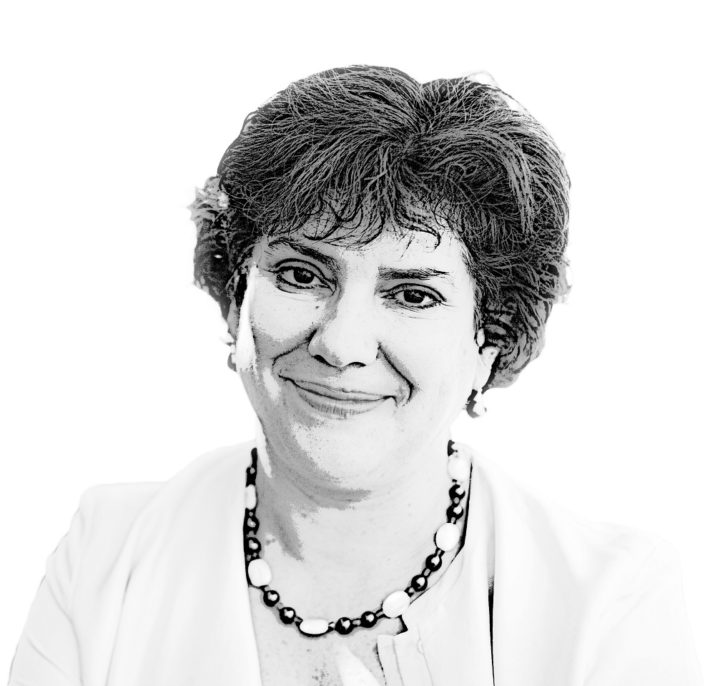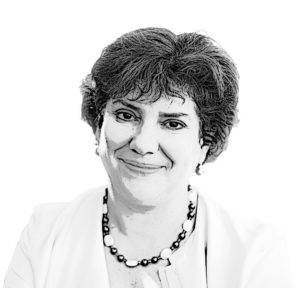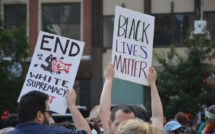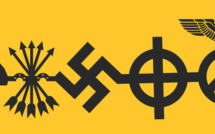

This is part of our Campus Spotlight on the University of Virginia.
Janet Horne is an Associate Professor in the rnrench Department, with a courtesy joint appointment in History at the University of Virginia, and the Director of the University’s European Studies program. As a widely published scholar in both English and French languages, Professor Horne brings her enthusiasm for interdisciplinary work and cultural studies to the European Studies Masters program, as well as to the University at large. Professor Horne’s current book project All the World’s an Empire: The Alliance Française and the Making of Global France investigates the history of the Alliance Française institution from a nuanced, sociohistorical lens. Horne’s vision and unique experience push through the boundaries of conventional social science concentrations to train forward-thinking scholars in tackling complex geopolitical problems both globally and locally.
— Maria Lechtarova for EuropeNow
EuropeNow Can you give a brief description of the European Studies program at UVA? What new program developments are you most excited for students to know about?
Janet Horne We are in the inaugural year of a new MA degree program in European Studies that we hope is just the beginning of a dramatic redefinition of how UVA studies Europe. Essentially, we are inviting students to think across disciplines and cultures and apply a diverse array of methodologies to the study of Europe in a global framework. We want our students to explore the role of Europe in the world, its complex legacies, its current challenges, and possible pathways forward. We want our students to be thinking pragmatically too. How can the study of Europe enhance their professional prospects, or perhaps chart a path forward to further graduate study? We hope to attract students who are interested in Europe from many different angles—the arts, the humanities, social sciences, public policy, sustainability practices—and who are excited about thinking about Europe and themselves in new ways.
Students can obtain their degree with one year of intensive study here in Charlottesville, followed by one semester of study and research in a European university. Each student defines a personal research project, receives training in various methodological approaches, and then goes out and conducts their own research in Europe, while studying at one of our partner institutions. The culmination of this process is the writing of an MA thesis, which we hope will be enormously satisfying to our students and helpful to them as they venture out into the global workforce in possession of comprehensive training, first-hand experience in Europe, and expertise in a particular subject about which they are passionate.
I am probably most excited to let students know that, as part of our program, they can really hone their own individual research questions and then get out there and conduct research in Europe, find answers to their questions, find new questions, get lost, be puzzled, be challenged. Through that process, they will find what truly interests them. They will also hopefully find themselves. (You know, that truism about study abroad—we set out wanting to discover others, and we end up discovering ourselves!) I have always been a huge fan of study abroad, since it was such a formative and life-changing experience for me when I went off to study in France many decades ago, an experience that sparked a life-long passion, both personally and intellectually. Our European Studies initiative takes study abroad in Europe to a new level because our students really spend time thinking ahead of time about what interests them and developing a cogent research plan prior to departure. Then, their learning and experiences in Europe take on a new self-direction that I think will be empowering. One of our current students, Andrea Villena, is developing a research project on human trafficking in Europe while another, Aurora Lofton, has been gaining experience in migrant legal aid, while volunteering at the Rights in Exile Initiative in Oxford, England.
EuropeNow The European Studies program underscores the importance of interdisciplinary work, and educates its students to be informed scholars and professionals in a diverse and interconnected Europe. How does the European Studies program, particularly the European Studies MA balance students’ intellectual curiosity with academic rigor?
Janet Horne Well, for one thing, I would say that we are committed to incorporating into our program new ways of thinking about Europe itself. In that respect, I suppose that one way we provide academic rigor is through an innovative intellectual framing. To study Europe today means to think about extra-European global issues where Europeans have had an impact. We want to encourage our students to think about what Europe means in the world, about Europe beyond Europe, about Europe as seen from non-European spaces. Students are very interested in such questions. To that end, our collective inquiry brings into dialogue a wide variety of voices, methodologies and approaches. We want to address the complex legacies of European imperialism as well as humanitarian endeavors, to incorporate colonial and post-colonial studies, the history of various migrations, diasporas, and global trade, as well as to interrogate European educational models, concepts of human rights and structures of legal protections. We hope to achieve academic rigor from the outset through an intellectual framework that asks questions both about Europe’s impact on the world and the world’s impact on Europe.
More concretely, our students have two required core courses: “Perspectives on Europe and the World: An Introduction to European Studies” and “Research Inquiries in European Studies.” The first course provides students with a strong interdisciplinary and historical foundation for understanding how global forces have shaped the very concept of Europe, as well as introducing them to the emergent field of European Studies. The second course sets as its goal to help students develop a compelling and rigorous research project, while initiating them to thinking about methodological questions, the nature of evidence, and developing a literature review pertinent to their topic and research question. We also require advanced language proficiency in a European language other than English, firmly believing this to be a critical skill needed to engage meaningfully in European affairs in any domain.
EuropeNow How can investing in an interdisciplinary lens help students to develop their university campuses into vibrant and supportive intellectual communities?
Janet Horne The interdisciplinary lens afforded by European Studies has the potential not only to initiate a dynamic redefinition of how we study and conceive of Europe, particularly at this critical juncture in its history, but it also has the potential to be transformational in our corner of the academy. By that, I mean that there are currently too many little pockets of scholarship on Europe going on in one department or another, where scholars remain cordoned off from one another because of antiquated departmental structures, curricular requirements, promotion and reward systems, funding structures, etc. This is an on-going problem that we are all facing throughout the academy.
The University of Virginia, I think, has recently taken great strides towards breaking down some of those walls and imagining new mechanisms—both intellectual and structural– that encourage and unleash the energies needed for true interdisciplinary dialogue. The dynamism generated by UVA’s Global South initiative is a case in point, where transdisciplinary hires were made, with the help of the Mellon Foundation, to build a deep interdisciplinary team of faculty and graduate students with tendrils reaching throughout the university. In the realm of European Studies, we are just starting down a path that could yield similar results. Many of us do not yet define ourselves as Europeanists, although intellectually we know that our work is increasingly transnational, explores cultural borrowings across multiple borders and has global resonance. The interdisciplinary nature of our program of European Studies has already, over the past year and a half, helped us enter into dialogue with one another, learn more about each other’s work, participate in conferences, work on common projects—in the process laying the groundwork for the kind of intellectual community you are talking about.
You are right to suggest that a supportive and vibrant interdisciplinary community is created by both student and faculty investment. We have a very successful undergraduate major at UVA right now- Global Development Studies—that was entirely student-driven at its inception. We recently organized a “European Studies Design Thinking” workshop, led by Elgin Cleckley, a colleague in the Architecture School. Students repeatedly said that they wanted an undergraduate program in European Studies that had a similar global focus. When we asked them, “Why Study Europe?,” they said things like, “Europe is a laboratory for innovation, collaboration, and negotiation.” Another group imagined a “Center for Europe in the World.” There was an infectious collaborative energy in the room. These interdisciplinary encounters and conversations among faculty and students, even during a three-hour workshop, can generate cross-campus enthusiasm. Now, I must add that I only met my Architecture School colleague, Elgin, through an interdisciplinary film project organized by our European Studies program last year. I’m not sure our paths would have crossed otherwise, simply because he is not in the College of Arts and Sciences. He was drawn into our European Studies orbit by his creative work with students focusing on the island of Lampedusa. As a result, he participated in a UVA panel that we organized for last summer’s Conference of Europeanists in Glasgow along with Michael Levenson (English); Krishan Kumar (Sociology); Manuela Achilles (Center for German Studies); Enrico Cesaretti, (Italian); Katya Makarova, (Sociology) and myself (French). European Studies can provide a new platform to generate strong collaborative work across disciplines, across schools, and to encourage new forums for the sharing of ideas and resources. Initiatives of this type have the potential to transform the way we work with each other and with our students.
EuropeNow As a citizen, and as a member of the UVA community, can you speak to the university’s response regarding the Charlottesville events over August 11-12?
Janet Horne Well, the first thing to say is that, as a resident of Charlottesville, it is obvious that August 11-12 is far from over. We are still dealing with so many of the deeper issues that boiled up to the surface from within our community regarding race relations and inequities of all types. I think that our community—both the university and our larger civic community in Charlottesville – is committed to understanding what happened on August 11th and 12th. These painful events remain in the forefront of our minds and at the center of our collective consciousness. We all know that we cannot let things go back to an unacceptable “normal.” We are committed to learning from these events and the University of Virginia has a big role to play by looking closely at itself, at its history and also at its present. We all have work to do in ways big and small to promote continued dialogue and greater democratic inclusivity throughout our community.
You ask about the response of our university. My answer, I think, must be twofold. The immediate response on the part of UVA but also of local law enforcement was clearly deficient—and we are still going over the details of that deficient response with a fine-tooth comb. I was present in Charlottesville on both days and saw with my own eyes the violence, the chaos, the woefully insufficient protection given to student protestors and the inadequate engagement of law enforcement. Now, I am not a lawyer, but when you see hundreds of people parading through public spaces in a small city brandishing assault weapons and dressing in paramilitary gear—to the point that ordinary citizens, but also perhaps local law enforcement officers, were intimidated—you’ve got a completely unacceptable situation, as was evident to the entire world. White supremacists and two militias in full combat gear claimed the second amendment right to bear arms and the first amendment right to freedom of speech as justification for their intimidation of local citizens whose attention to the history of racial oppression in our city drew murderous white supremacists to Charlottesville in the first place.
But since those tragic and ugly events of August, our University has done a tremendous amount to address what happened, to support initiatives that have been launched by faculty and students and to imagine creative responses of healing and understanding. The University has also taking concrete measures to ensure greater safety and security on our grounds and our community has reaffirmed its collective commitment to democracy and the pursuit of greater equity. The Dean of our Law School, Risa Goluboff, a civil rights historian and legal scholar, accepted our President’s invitation to lead a working group of deans and other university leaders to coordinate these responses. The results have been truly impressive. You can get a sense of the range of responses by consulting a document prepared for this special issue by my colleague Manuela Achilles, Director of the Center for German Studies, who herself has been deeply engaged in so many of these efforts: “Collective Response: Moving Forward Initiative of the UVa College of Arts and Science.”
EuropeNow How will the University and also your program continue to address the questions raised in our community by Augusy 11-12?
Janet Horne There are many on-going efforts to address and analyze the events of August 11-12. One 2018 initiative—“When the Fascists Came to Town: Reflections on the Radical Right from Weimar to Charlottesville”—is being spearheaded by our colleague, Will Hitchcock (History). Building on a History Department teach-in held in the heated aftermath of the violent demonstrations of August, scholarly speakers from UVA and beyond will analyze the broader implications of these events and scrutinize how they seem to bear all the marks of a contemporary Fascist revival. As their proposal puts it: “The perpetrators of August 11-12 were historical reenactors, seeking to harness the power of Fascist radical politics to a contemporary agenda of white supremacy.” The editors intend to publish a book that will certainly be of interest to students and the broader community. The University of Virginia Press has two important volumes scheduled for publication on the anniversary of the Unite the Right rally: the first is a journalistic treatment of the events of August, written by a local investigative reporter, Hawes Spencer; the second is a collection of essays, edited by Claudrena Harold (History) and Louis Nelson (Architectural History), in which UVA faculty respond to the events of the summer. (A brief excerpt from the introduction to that book-in-progress is included here.) The European Studies faculty will continue to address related issues in our courses, where the deep, everyday work of the university occurs.
EuropeNow In your experience, how have the educational goals of today’s students changed? How do you think these goals can impact how students respond to conflict both locally, as well as globally?
Janet Horne Students feel acutely that there are shifts going on in the world order. As Pascal Bruckner recently put it in Le Monde, “The 21st Century will not be American.” This probability raises many questions in our students’ minds and is, I think, connected to their growing interest in Europe’s place—as well as our own—in the world. Students are naturally asking themselves questions about their role as citizens. They want their education to give them both theoretical and practical training to become effective agents for change both on a local and global scale, which, as they fully realize, are intimately connected.
I think young people have a renewed interest in Europe for many reasons. Europe has become a kind of laboratory for examining problems similar to our own, but through a different, yet somewhat familiar, cultural and geographical lens. This US/Europe comparative lens has, of course, a long history as we have mutually projected onto the other many of our greatest aspirations and fears. Today, Europe is seen as a site of global migration, but also of a faltering European project. Political institutions on both sides of the Atlantic appear suddenly to be impermanent, capable of failing. Such concerns, particularly in the current US political climate, have permeated the civic consciousness of our students. Some might have a rather dark view of the future, which is understandable; they have witnessed increased levels of incivility in public discourse, efforts to dismantle the Affordable Care Act, to revoke DACA, the US withdrawal from the Paris climate accords. These actions have been profoundly worrisome and unsettling for many Americans. Despite everything, I find our students to be rather optimistic; these concerns have sounded an alarm but they also are yielding new, energetic forms of engagement.
Our students are also increasingly looking outward, and very often, to Europe. They seek alternative solutions to problems that we share and that are frequently global in scope. When they go abroad, they are looking very carefully at European social and economic models. They are considering, with new attention, the impact of universal medical insurance, the centrality of public transportation, and the serious forms of engagement with sustainable and ecological models of living. Of course, they are also seeing all-too-familiar eruptions on the political landscape, with the rise of authoritarian populism, a retreat to nationalist xenophobia, debates over immigration, free speech, corporate taxation, etc. Overall, I think that Europe is undergoing a shift in meaning for many Americans. In the long history of this complicated transatlantic relationship—so often characterized as old versus new—Americans are starting to look to Europe for alternatives, the need for which we feel ever more acutely since the presidential election of 2016.
EuropeNow As populist revolt becomes more and more relevant to diverse societies and political economies the world over, how can interdisciplinary programs like yours help facilitate reflective and generative dialogue about the effects of violent protest in the broader public sphere?
Janet Horne This question is very thought provoking. For one thing, programs that reach across disciplinary boundaries can highlight the critical role of the humanities in deepening our engagement with and our understanding of today’s world. This, I think, is a very important point to stress. The humanities and the arts create bridges that reach a diverse and broad public and amplify the impact of work generated within the academy. Interdisciplinary programs are also inherently comparative in nature and can therefore enable us to examine and unfold an entire array of possible responses to violence, hatred and intimidation. Our students are looking for hope and inspiration as they seek to build a better future. Europe certainly does not have all the answers, but it can help our students imagine multiple possible responses to our current, seemingly intractable dilemmas—this in itself can breed hope.
When Timothy Snyder (most recently, the author of On Tyranny) came to speak to students at UVA this fall, he told a packed auditorium that to garner lessons from the rise of fascism in interwar Europe, we should consider the small, everyday decisions of ordinary people that helped pave the way—or not—for fascism. Hitler’s rise to power, he stressed, did not happen in one fell swoop. Snyder made direct connections between the decisions of Weimar Germans and those we make every day—to speak up, act, resist, intervene—or not—when faced with violence or intimidation. You could have heard a pin drop in the room.
New York Times journalist Nicolas Kristof, who also spoke at UVA this fall, challenged us all to reconsider the phrase “a drop in the bucket.” It doesn’t have to be understood, he suggested, in a negative sense—as in “it’s only a drop in the bucket.” Instead, one drop might just bring a second one and, when those drops start accumulating, the bucket can fill and even overflow with possibilities. These are hopeful words for coping with discouraging times.
Janet Horne is Director of European Studies and Associate Professor of French with a courtesy joint appointment in the Corcoran Department of History at the University of Virginia. A social and cultural historian of modern France, she has an overarching interest in the history and archeology of modern cultural institutions in national and imperial contexts. Her first book, A Social Laboratory for Modern France, focused on the social, political and cultural underpinnings of the French welfare state via a study of social reformers associated with the Musée social. She is currently writing a cultural history of the Alliance Française, provisionally titled All the World’s an Empire: The Alliance Française and the Making of Global France.
Maria Lechtarova is a second-year PhD candidate in the Anthropology Department at NYU. Her work investigates historical and semiotic instruments of visual media to unfold their symbolic capacities as tools for nationality development and acquisition. Her MA thesis, titled “Tracing Traveling Qualisigns; mapping ethnographical platforms of Post-Soviet Televised Consumption” was successfully defended at the Harriman Institute for Russian, Eurasian, and Eastern European Studies of Columbia University. Her undergraduate thesis, “The Inner and Outer Chronotopes of Vigilance: a cross cultural study of Neighborhood Watch signs in the United States and England,” was awarded by the UCSD Anthropology department.
Published on February 1, 2018.




